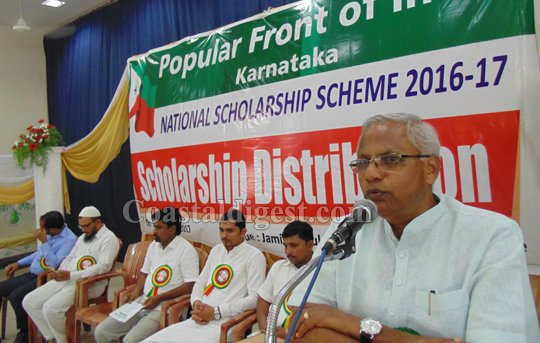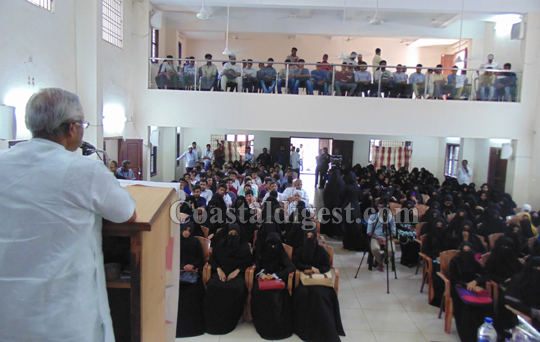Mangaluru, Jan 16: The Popular Front of India's national scholarship scheme (NSS) through which economically backward meritorious students across the country are identified and provided scholarship is commendable, said J R Lobo, Mangaluru South MLA.
He was speaking after inaugurating a scholarship distribution programme organized as part of NSS at Jamiatul Falah Auditorium, Mangaluru on Sunday. Scholarships worth Rs 12.93 lakh were distributed among 180 students on the occasion.
M A Gafoor, president, Minority Development Corporation, said that the development of our country is possible if all social organizations give prominence to education by taking up such initiatives. “In our county which is known for unity in diversity, the Muslim community has contributed enormously since pre-independence period,” he added.
“As our organization is working for the development of the Muslim community and backward communities, it is giving due importance to educational development” said Shafi Bellare, State Secretary of PFI in his presidential speech.
Ajaz Krishnapura, Corporater, Mangaluru, Nazir Tumbe, Director of Community Development unit, PFI were also present. Hanif Katipalla welcomed and Siraj Kavuru proposed vote of thanks.







Comments
Khader Should Learn from Lobo what is PFI?
Well done PFI....Good initiatives
Well done Mr.Lobo ......this is the real secularism............you deserve to be our guest for this occasion................
Add new comment